Another site to cross off my list was definitely the Natural History Museum. Yet again this is a beautiful building filled with fascinating and beautiful objects. The building is so grand it could be a cathedral rather than a museum.
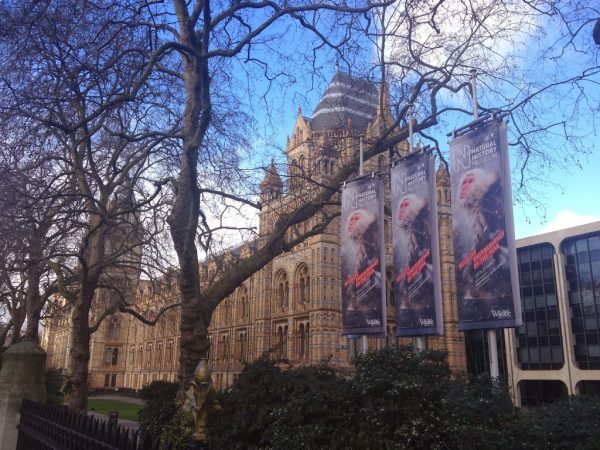
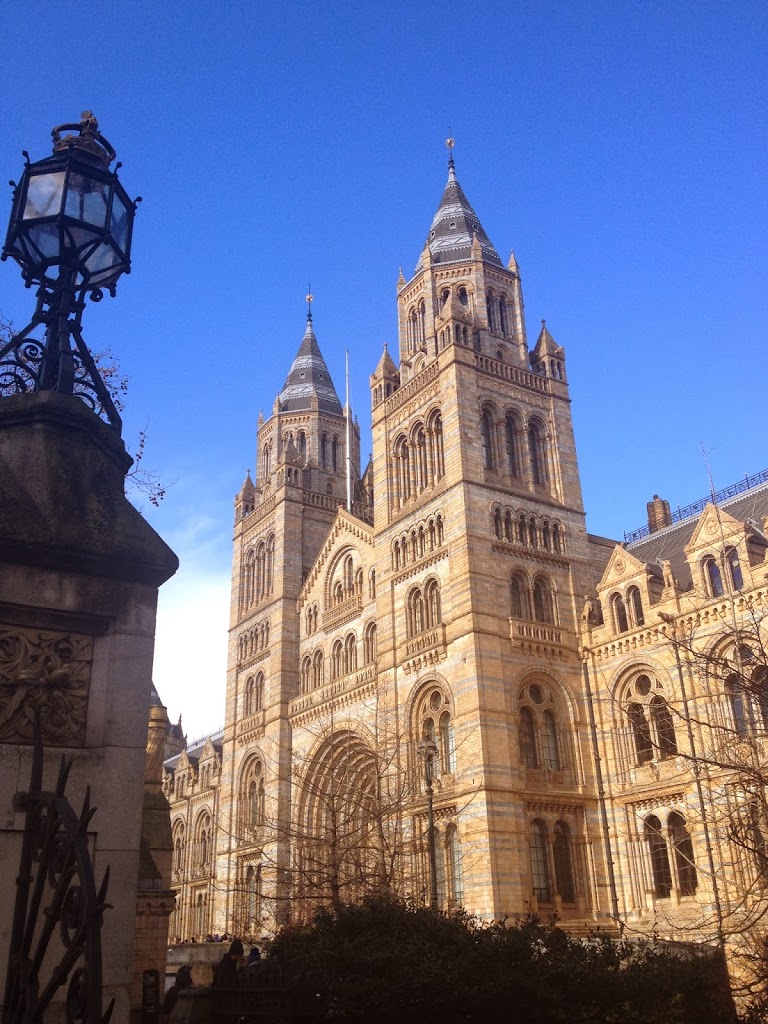
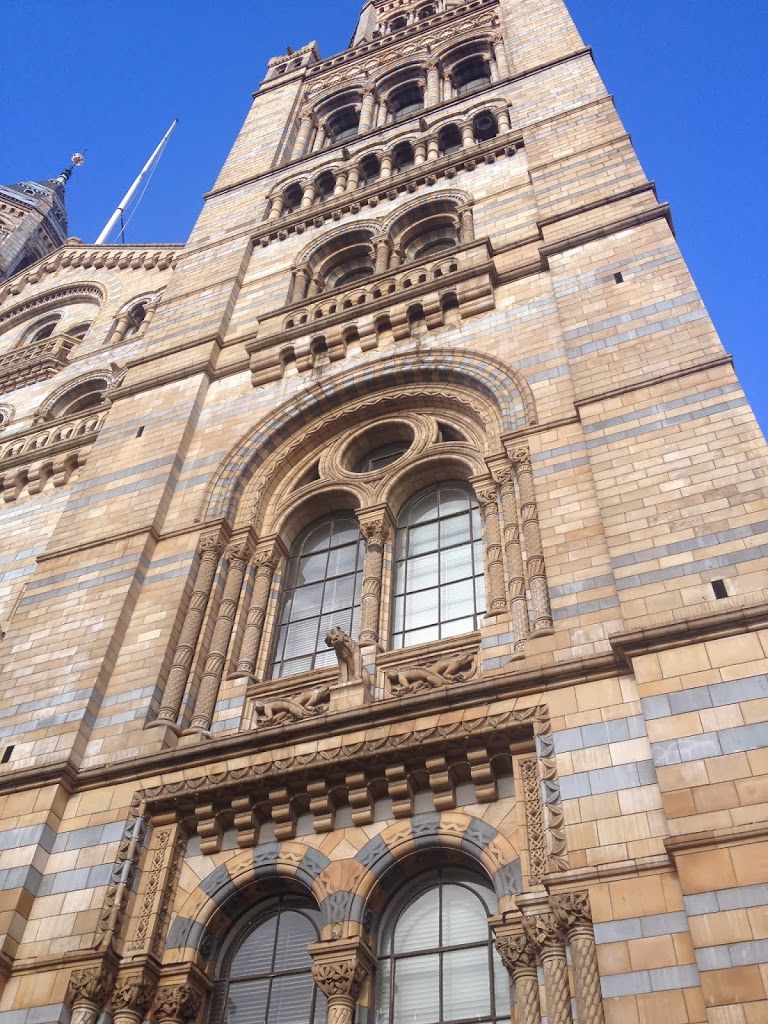
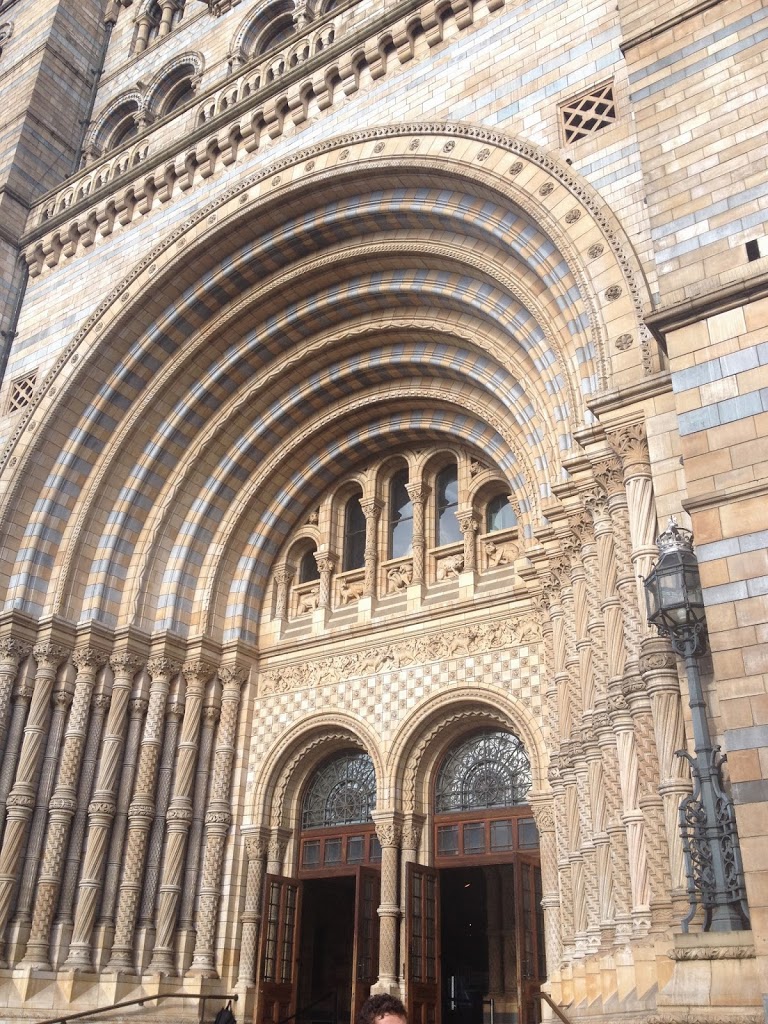
I especially like the gargoyles perched up by the windows!
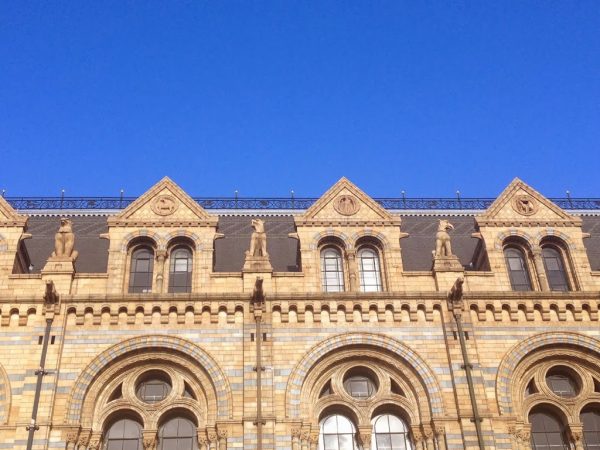
The entrance hall of the museum is well-known with the Diplodocus skeleton cast that greets you as you walk in. Incidentally Dippy, as the statue has been nicknamed, has been in the museum since 1905. During the Second World War all of his 292 bone casts were taken apart so that he could be placed in the museum’s basement to avoid damage during the London bombing raids. He has stood in his current place at the museum entrance since 1979.
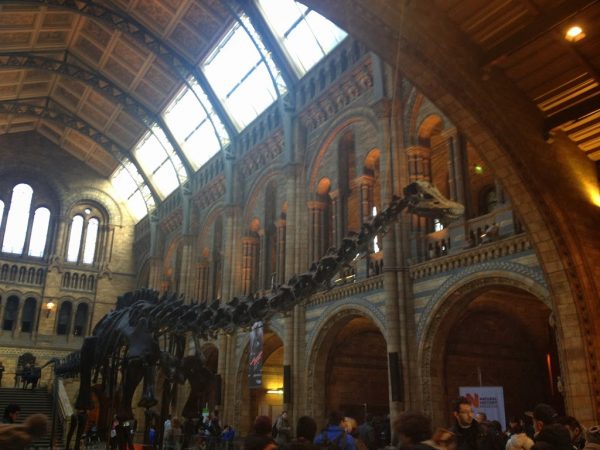
And of course one of the coolest parts of the Natural History Museum are the displays about dinosaurs, with LOTS of skeletons, on the floor and suspended from the ceiling. You can walk amongst them at ground level and walk along a walkway and look down on them from above, or at eye level!
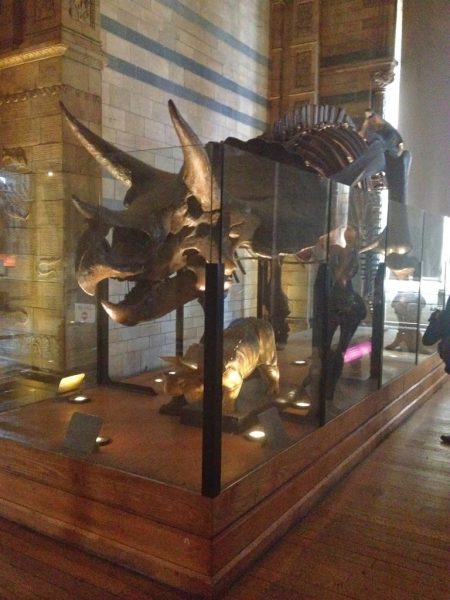
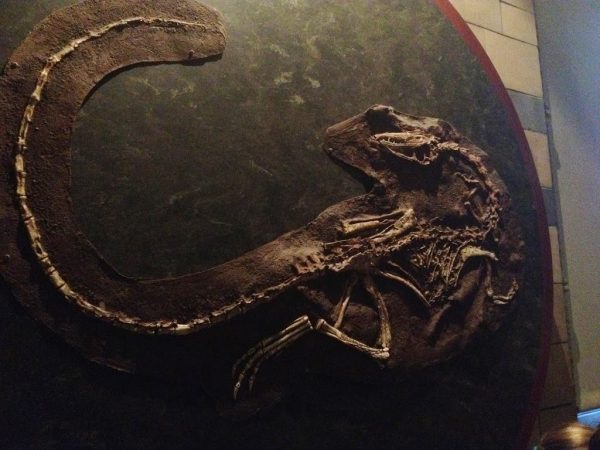
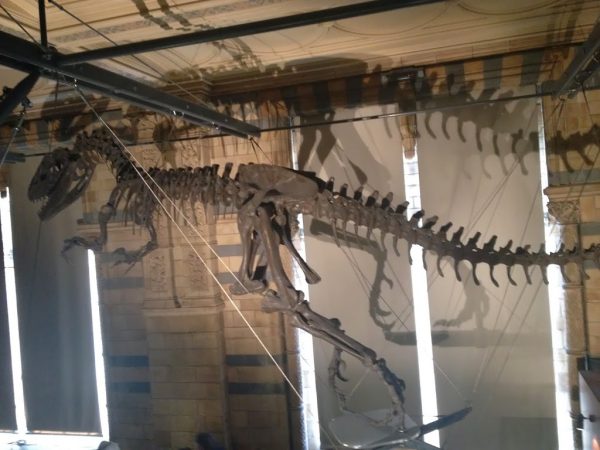
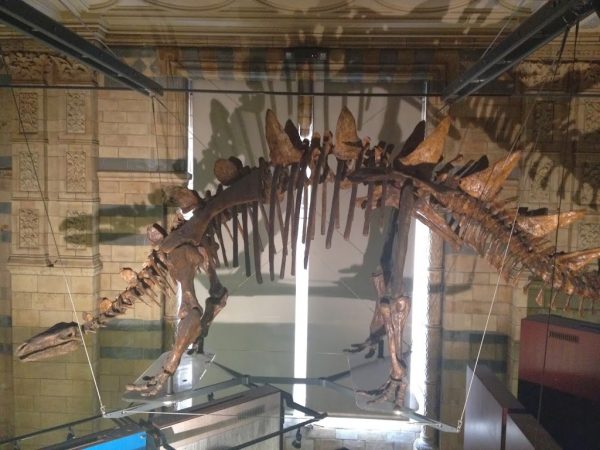
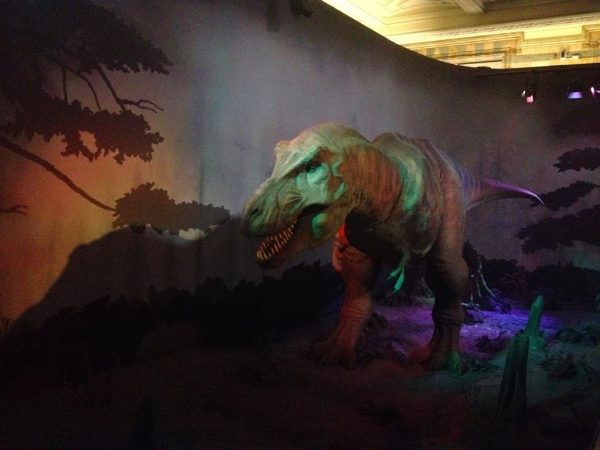
The Tyrannosaurus Rex model above actually moved his head and tail around and roared at people! The dinosaur below was sleeping, you could see his chest moving and hear him breathing, occasionally he twitched his tail or blinked at you.
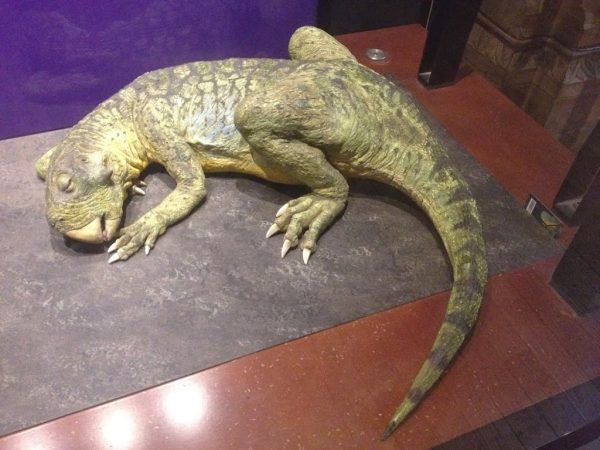
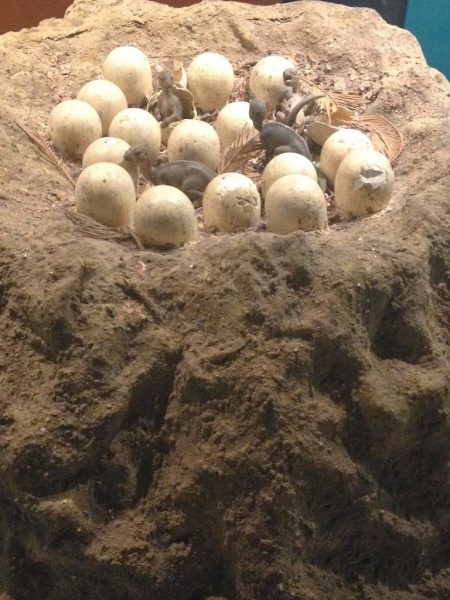
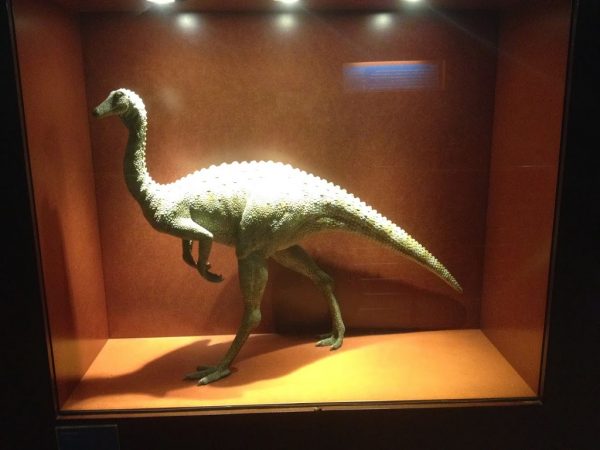
As well as dinosaurs this museum is also filled with fascinating animal specimens from around the world, both skeletons and full-body models. I was a bit scandalised to see that the Tasmanian Tiger and Tasmanian Devil were both very faded though!
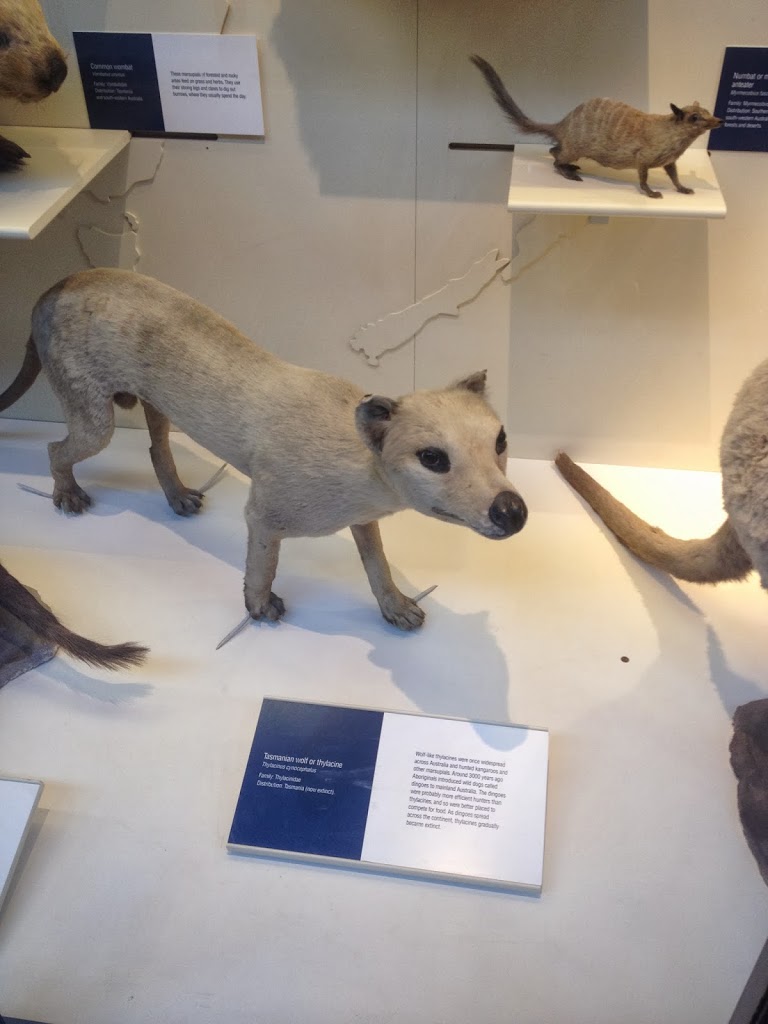
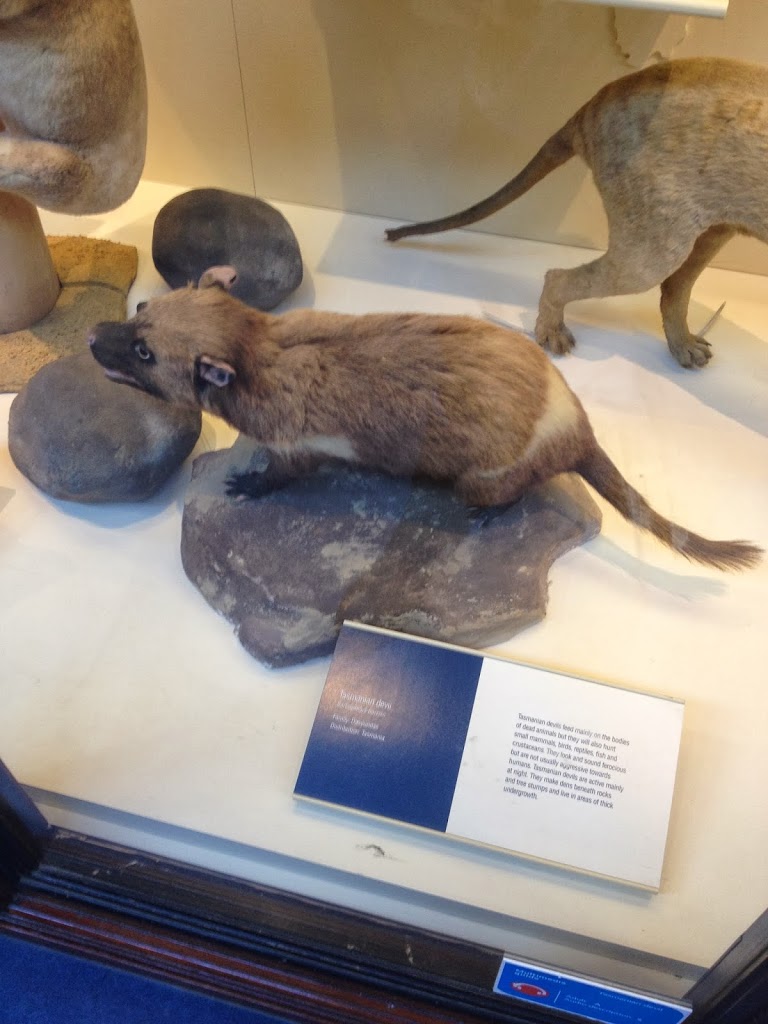
If you’re not familiar, the Tassie Devil (on the right) should be black with white bits (not brown) and the Tasmanian Tiger (on the left) should have black stripes from partway along its back to down its tail. But then I was slightly mollified to find that the big cats and the panda were all pretty faded too. I thought museums would take better care of their specimens, i.e., not leave them in the sun to fade?!
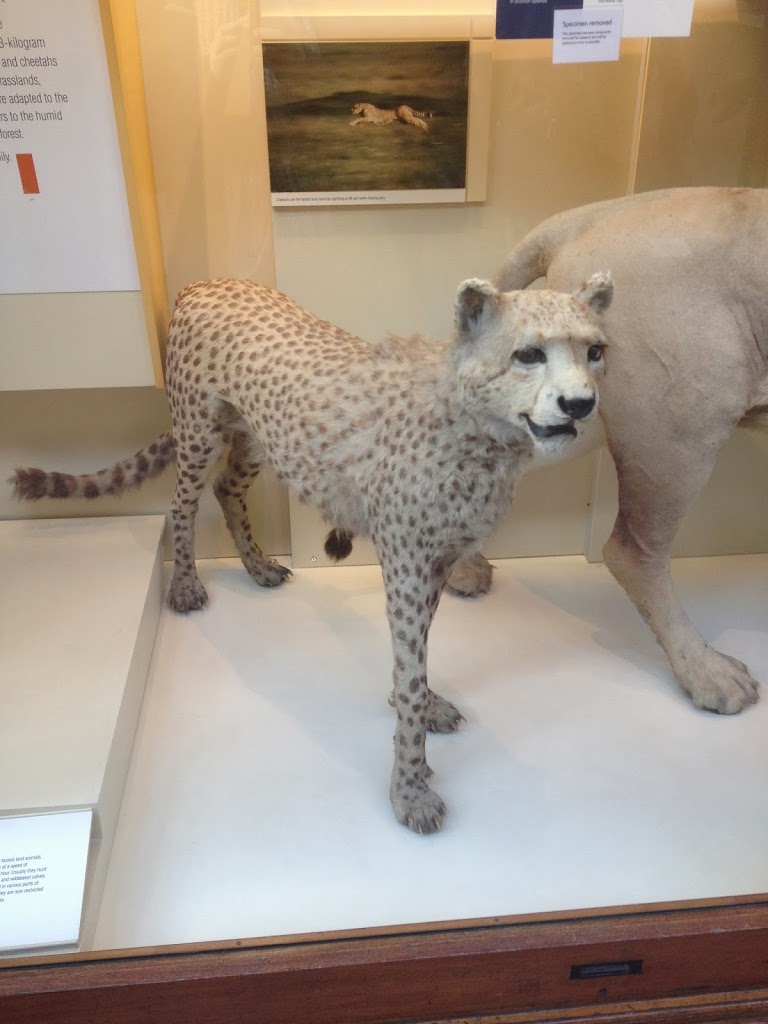
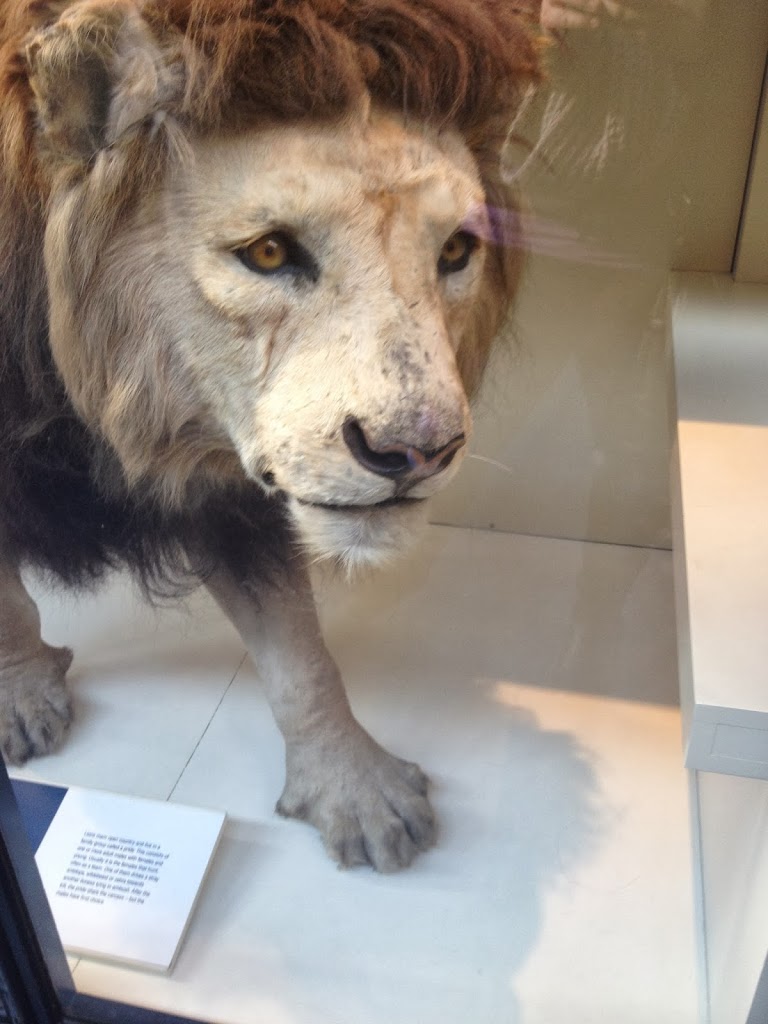
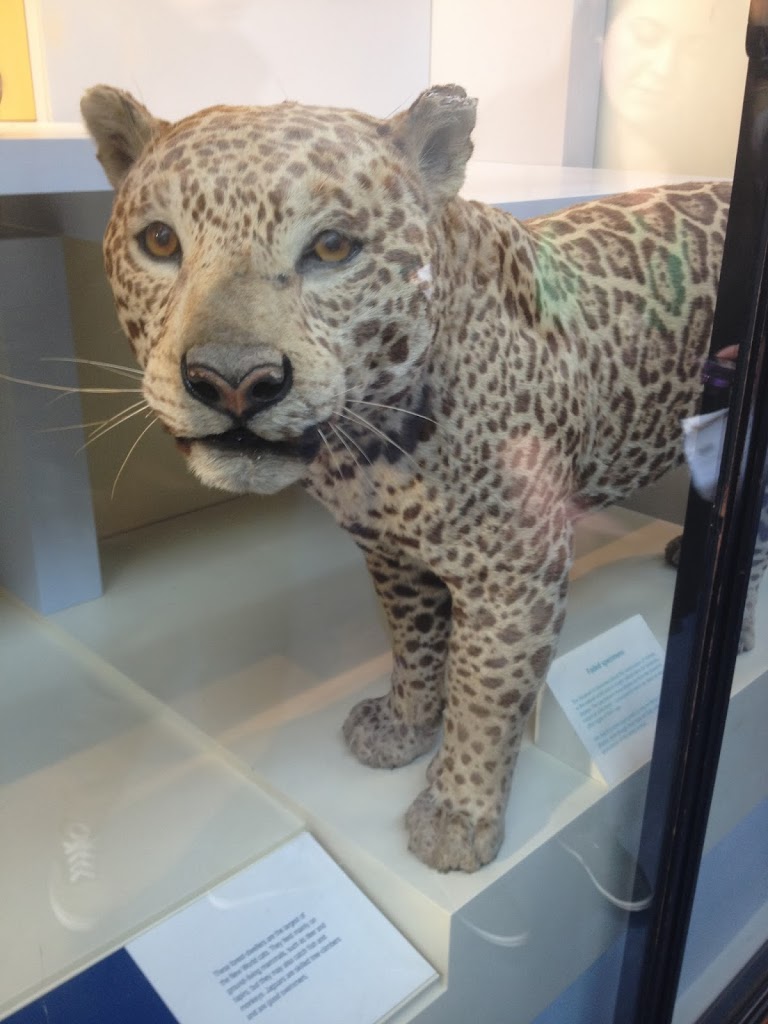
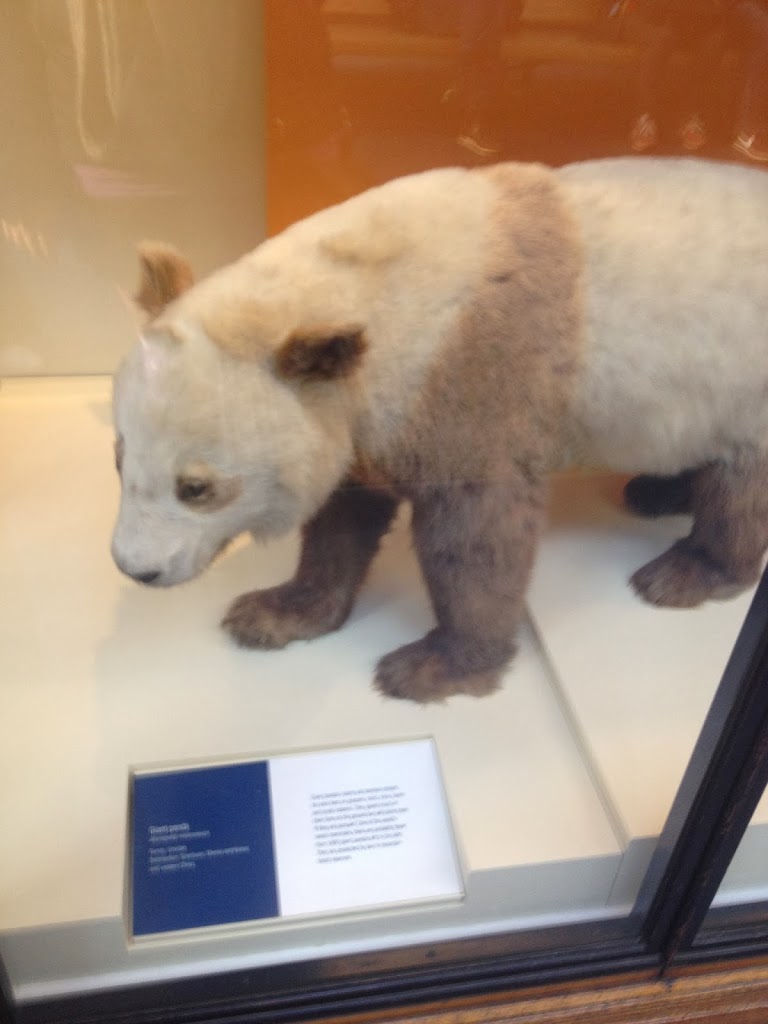
Anyway, there were also lots of animal models in the blue room, where a model of a blue whale and various whale skeletons are suspended from the ceiling, that is pretty cool to see!
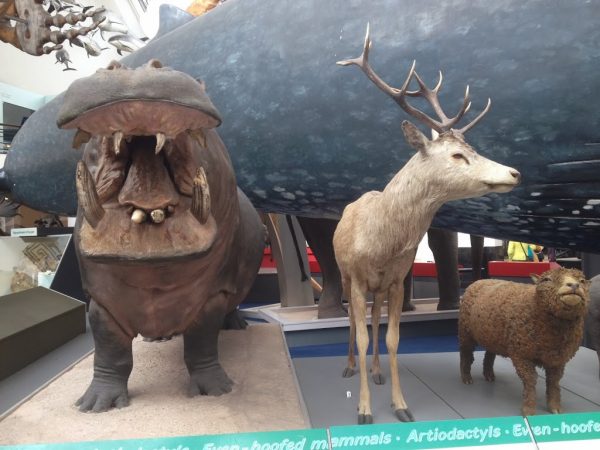
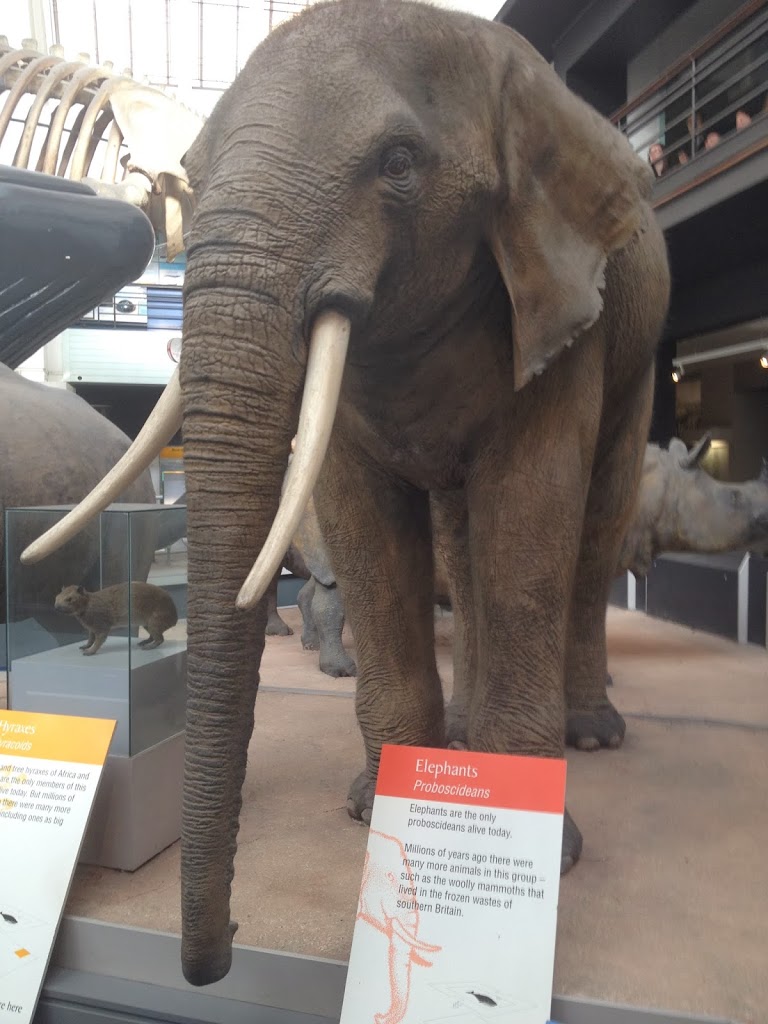
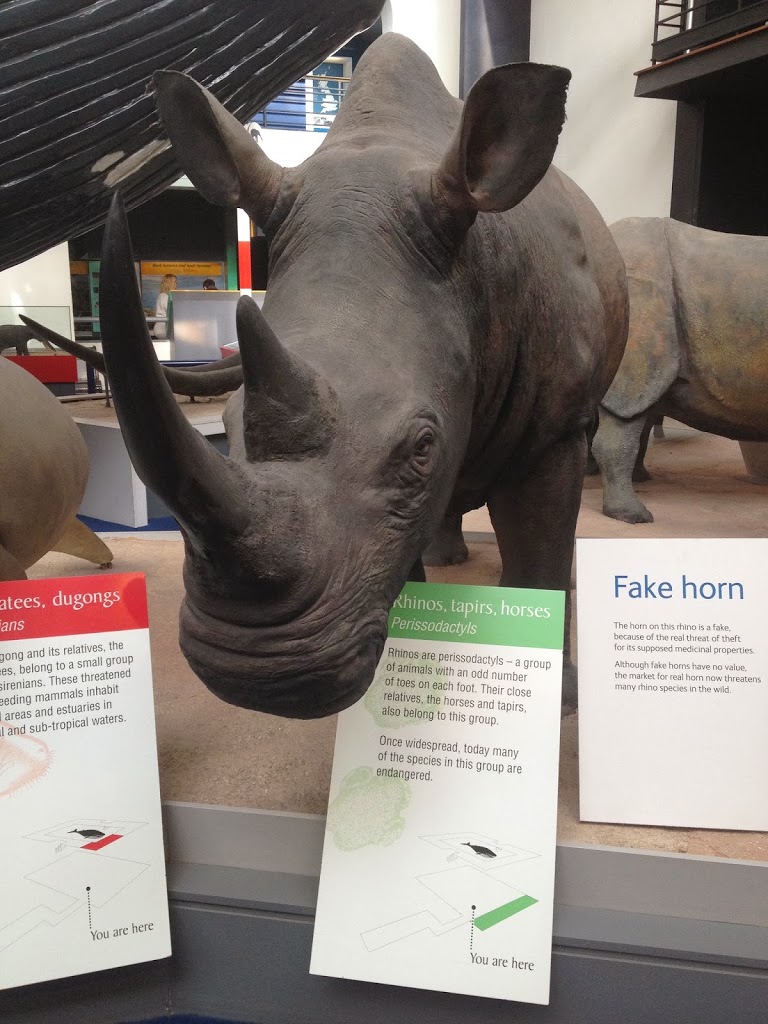
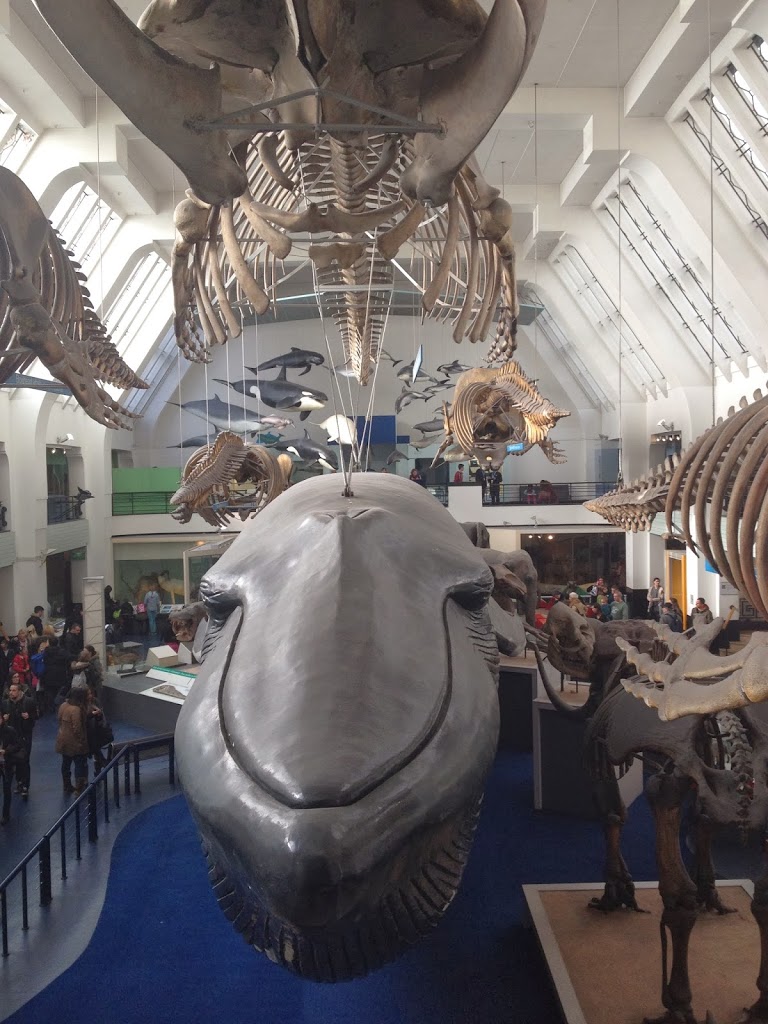
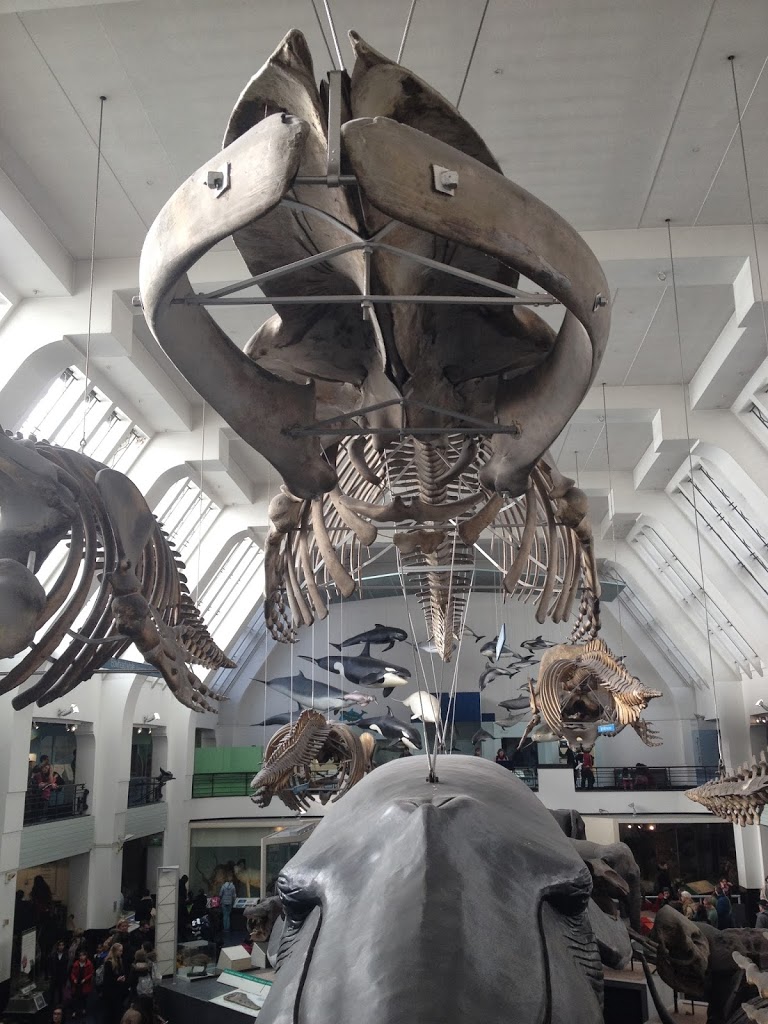
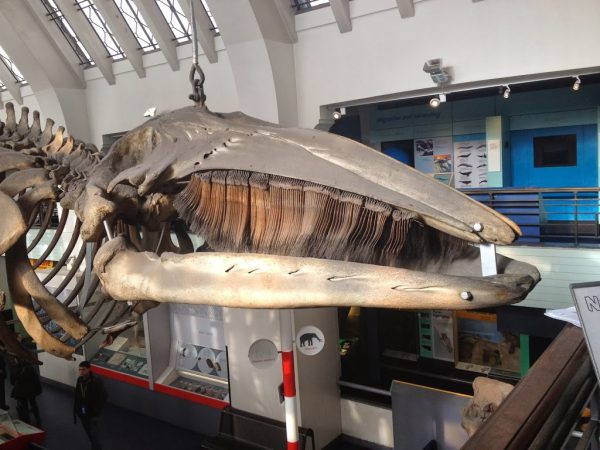
I also really enjoyed the “Darwin Galleries”; lots of examples of zoological and botanical drawings that count as both art and scientific record.
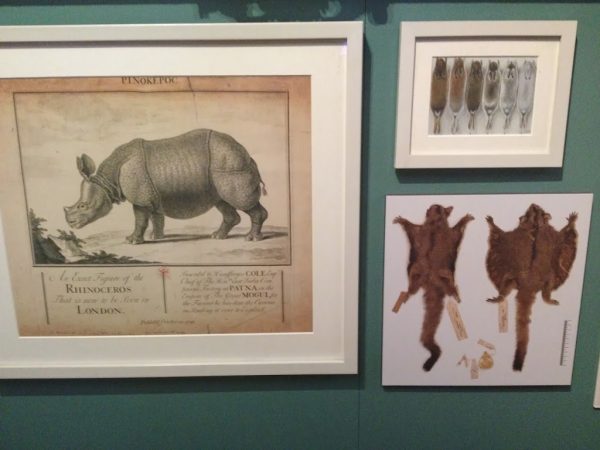
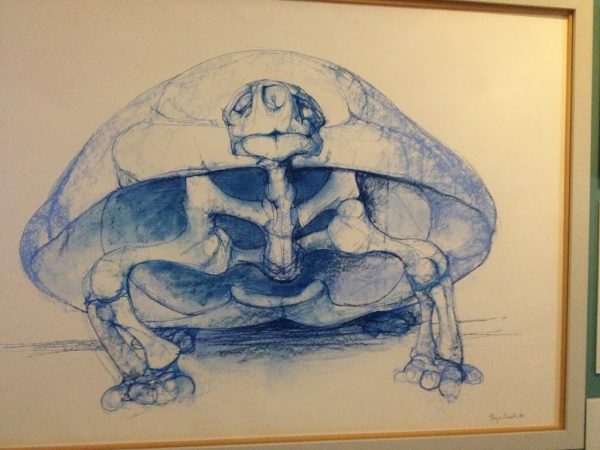
The images below were a huuuge pencil drawing on a massive sheet of paper!
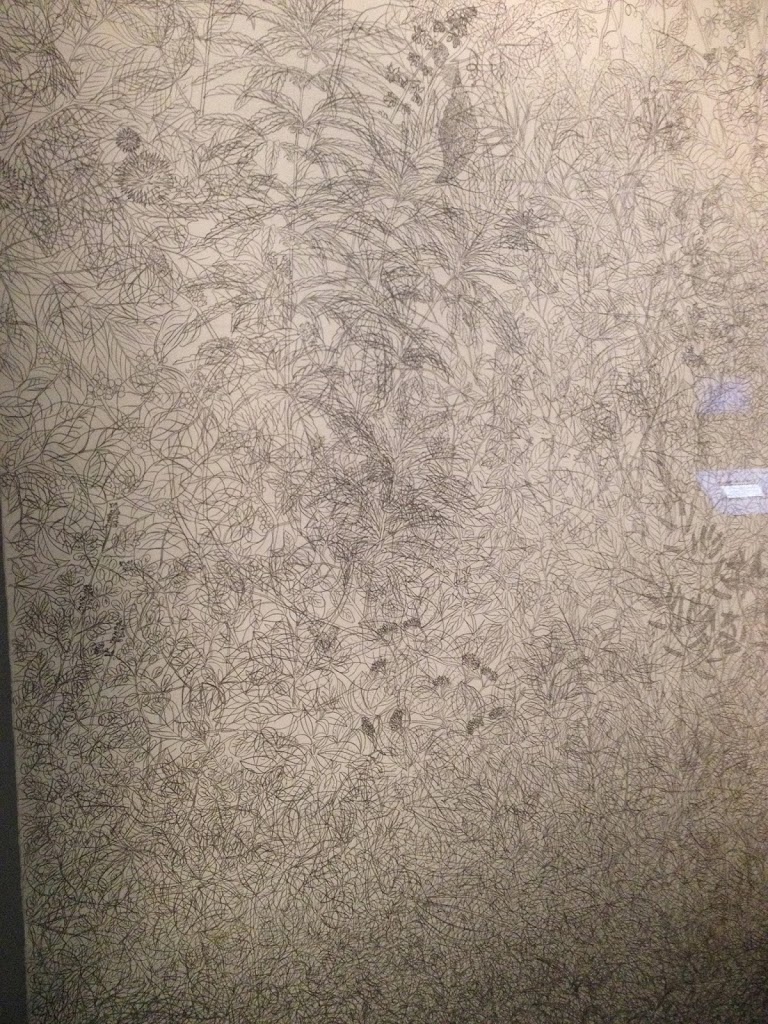
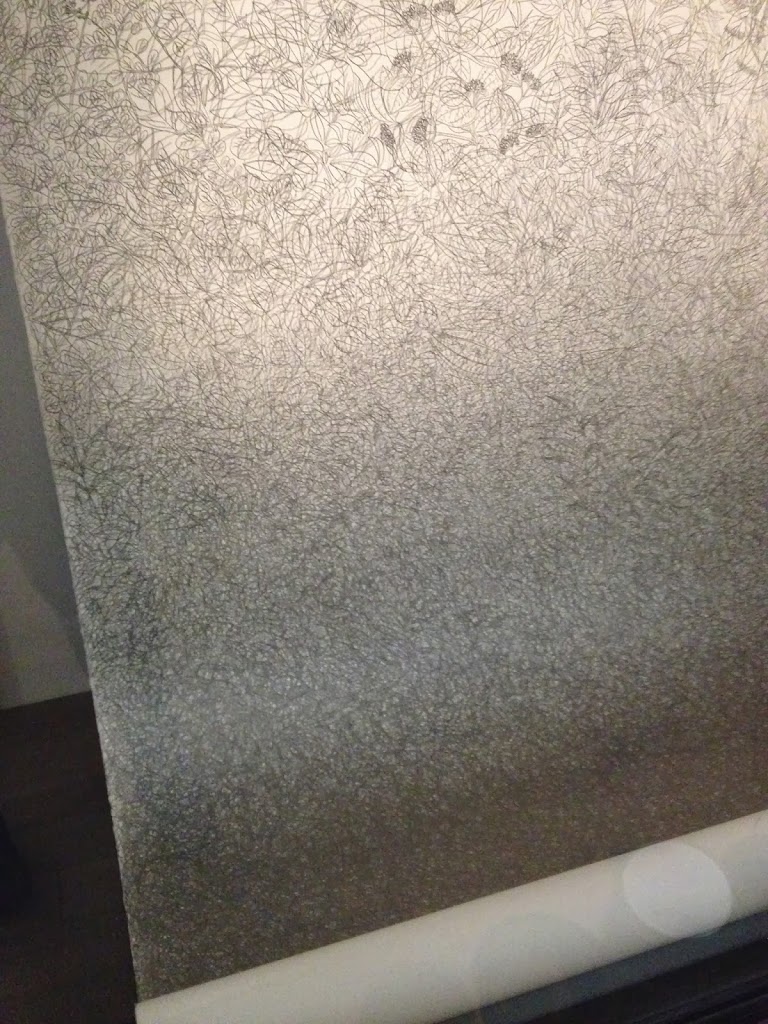
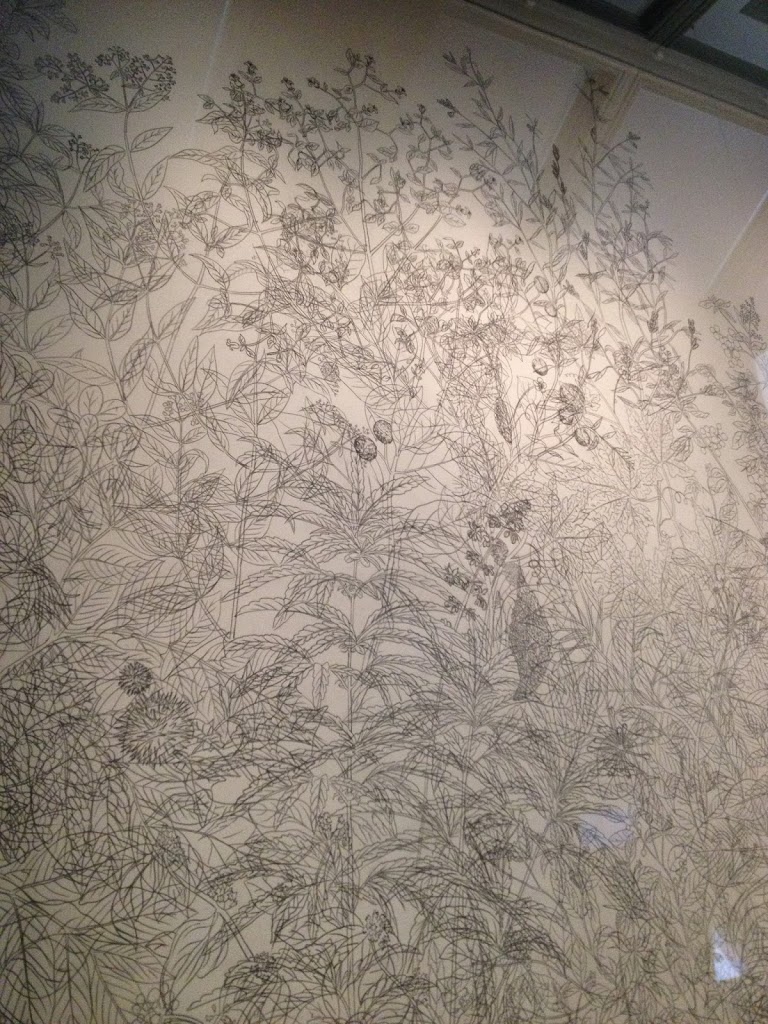
As I mentioned before, the building itself was fascinating, I loved discovering the little details like those below in the ornamentation of the walls and stairways.
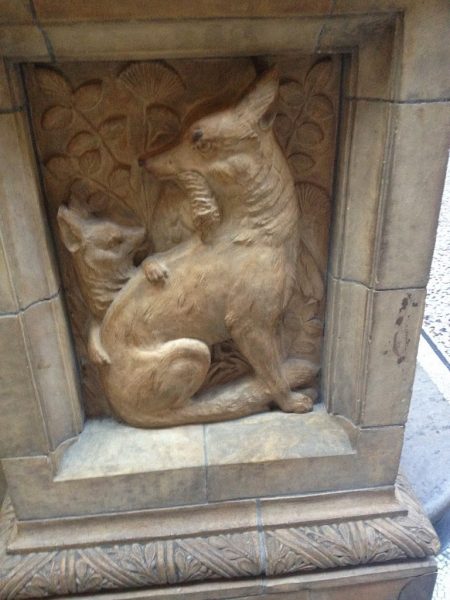
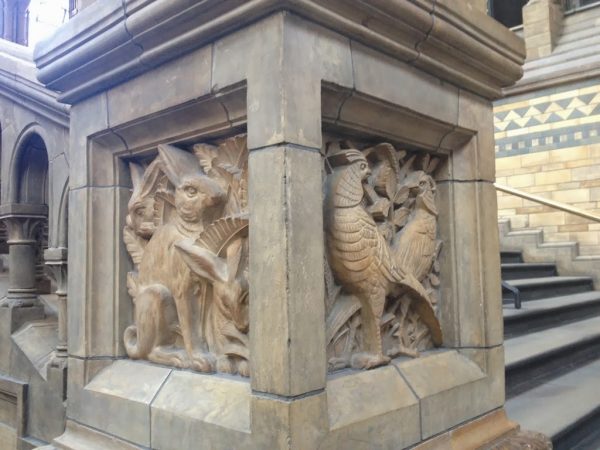
Even the ceiling has panels of botanical artwork, and note the monkeys climbing the arches! Of course, there’s a statue of the great man, Mr. Charles Darwin himself. And a skeleton of a dodo in the “Treasures” gallery.
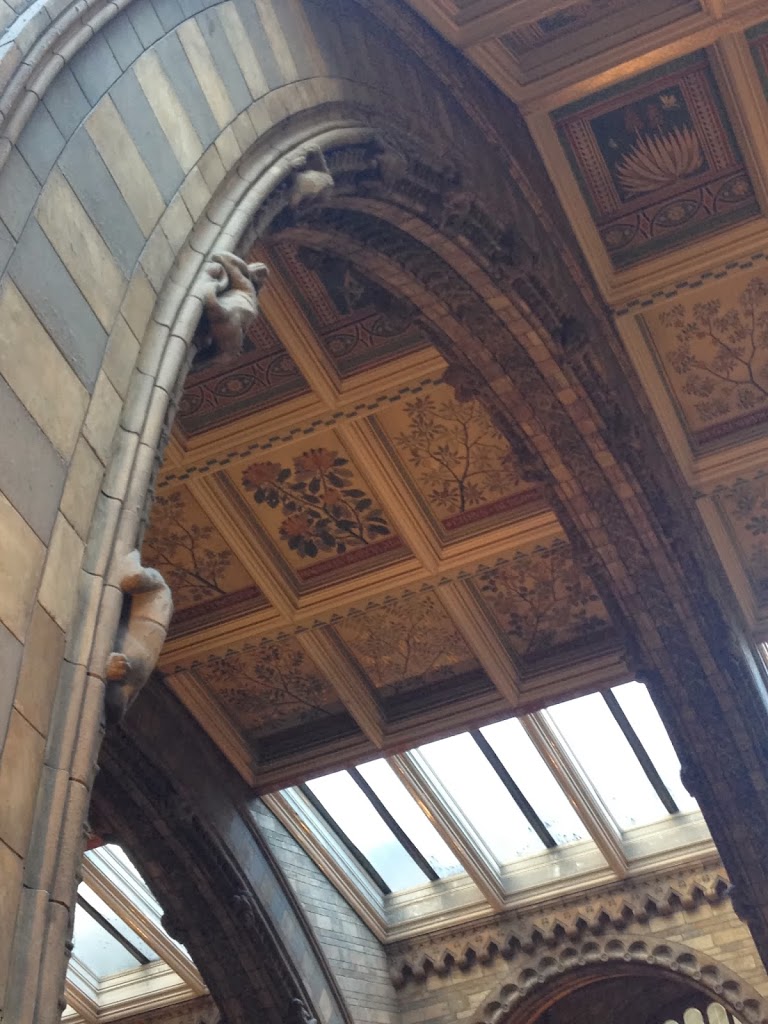
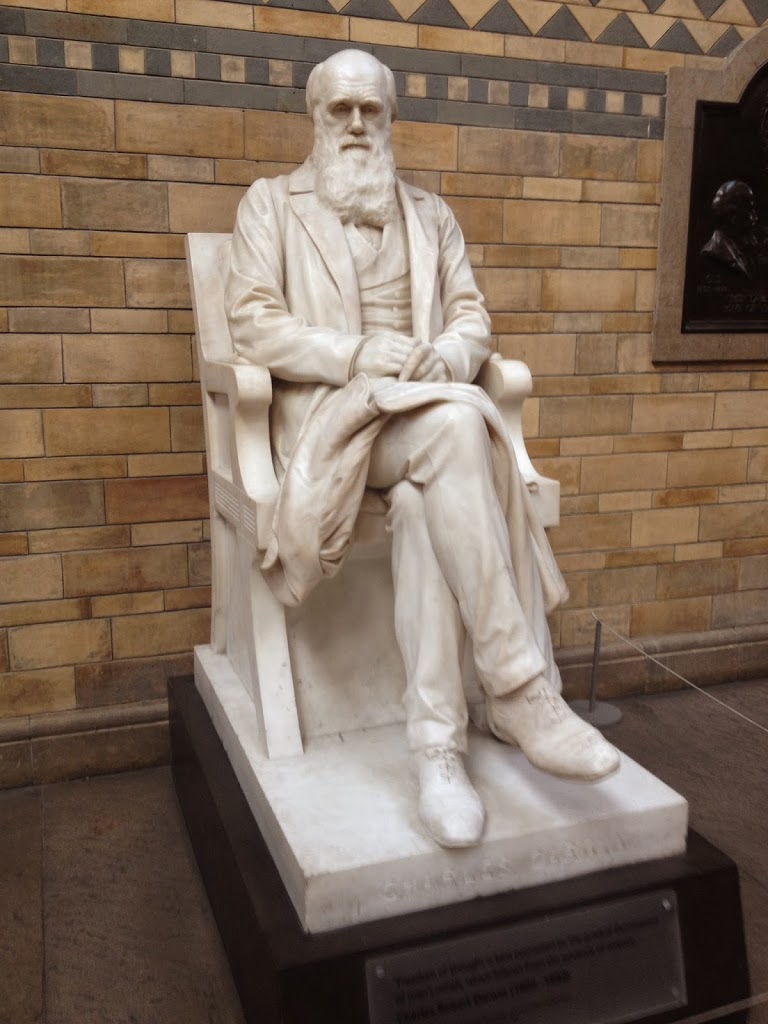
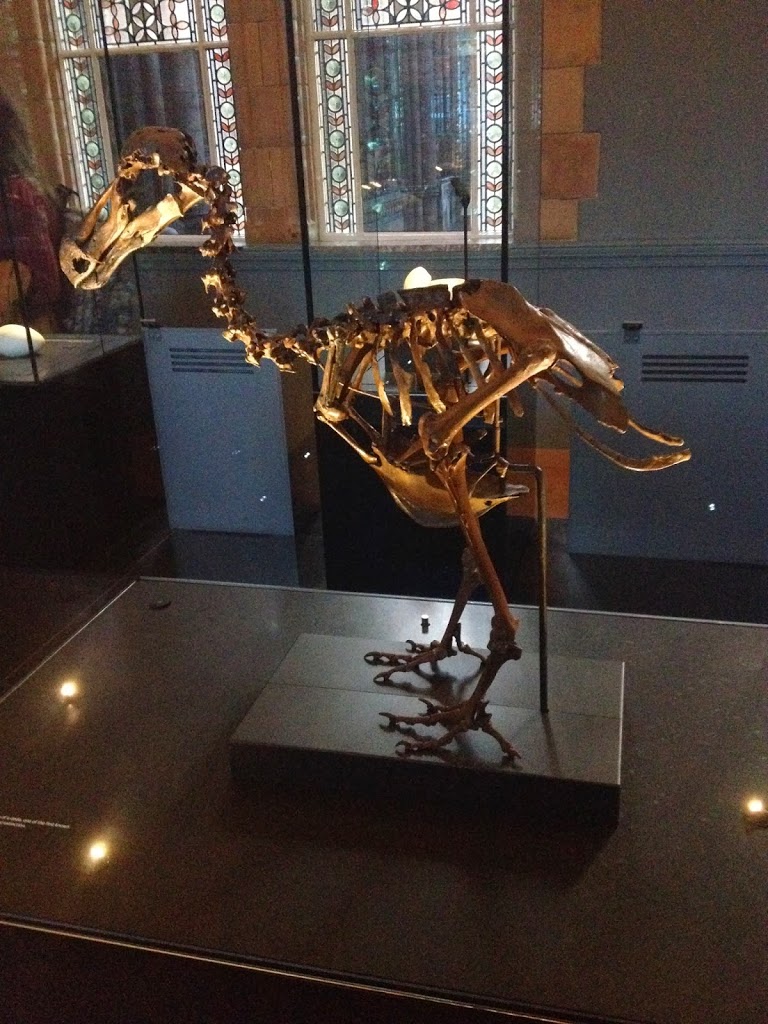
This big cabinet was in the bird gallery, it was really awesome to look at, but also sad; all those dead hummingbirds! 🙁
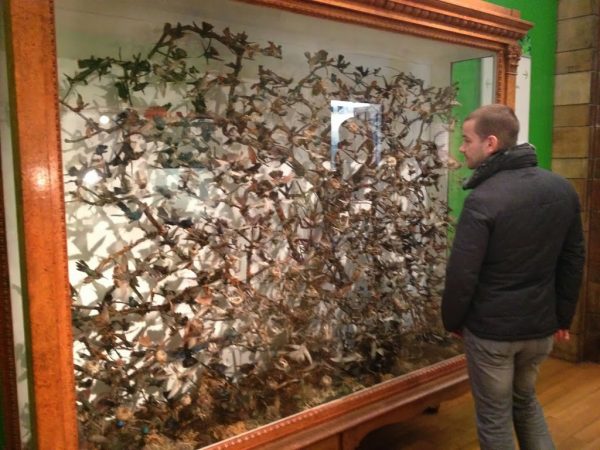
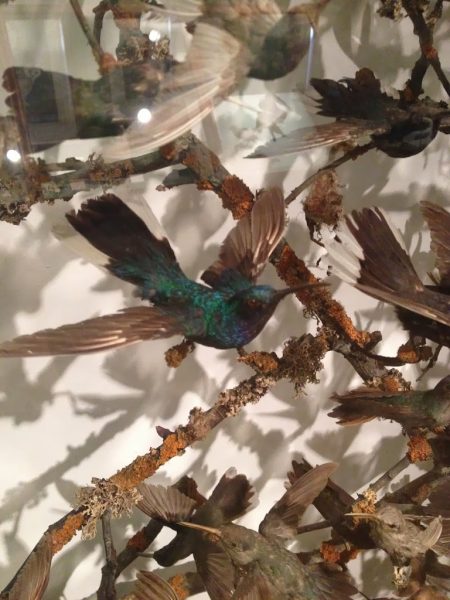
Pictured below: the culture vulture! 😉
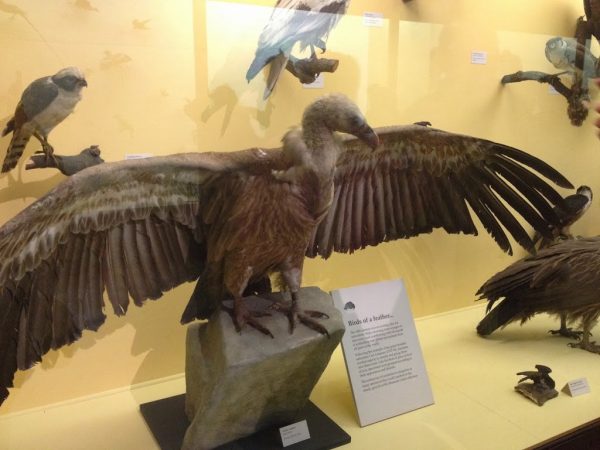
There was also a very interesting segment of the museum about the Earth itself: geology, volcanoes and earthquakes. There was a room that simulated part of an earthquake in Tokyo, every few minutes the floor would move from side to side with lots of noise!
There was also this massive model of a planet that you moved through on an escalator. It was very cool, but I got a bit of vertigo going into it and had to hold on for dear life so I didn’t get very good photos in that part!
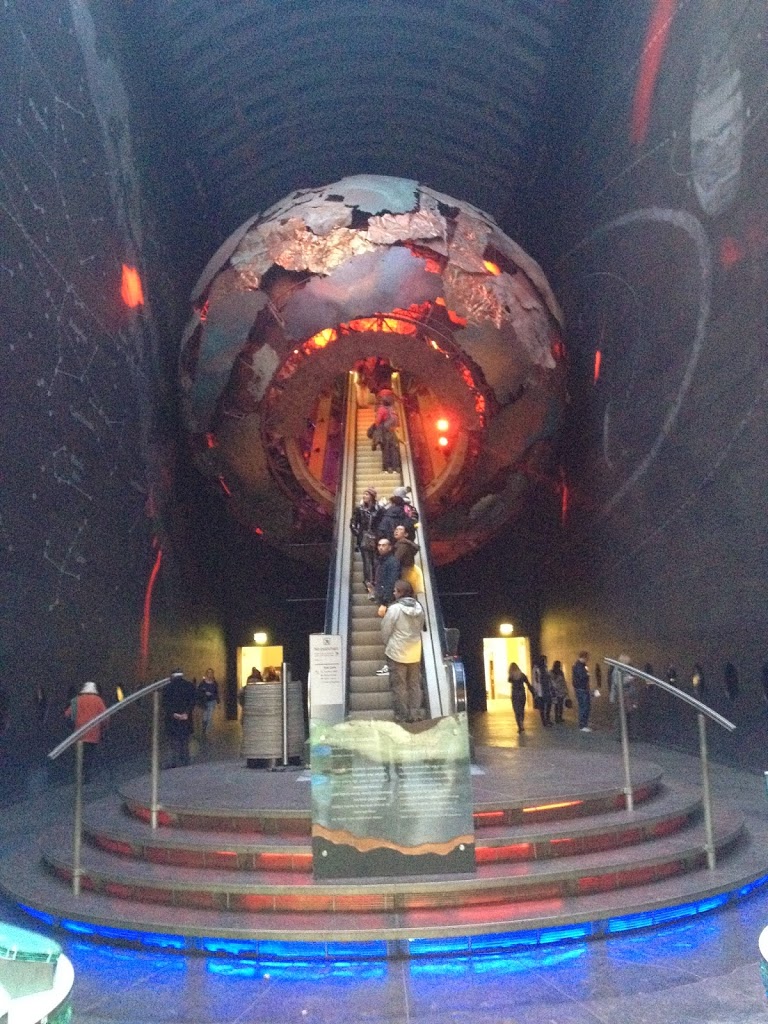
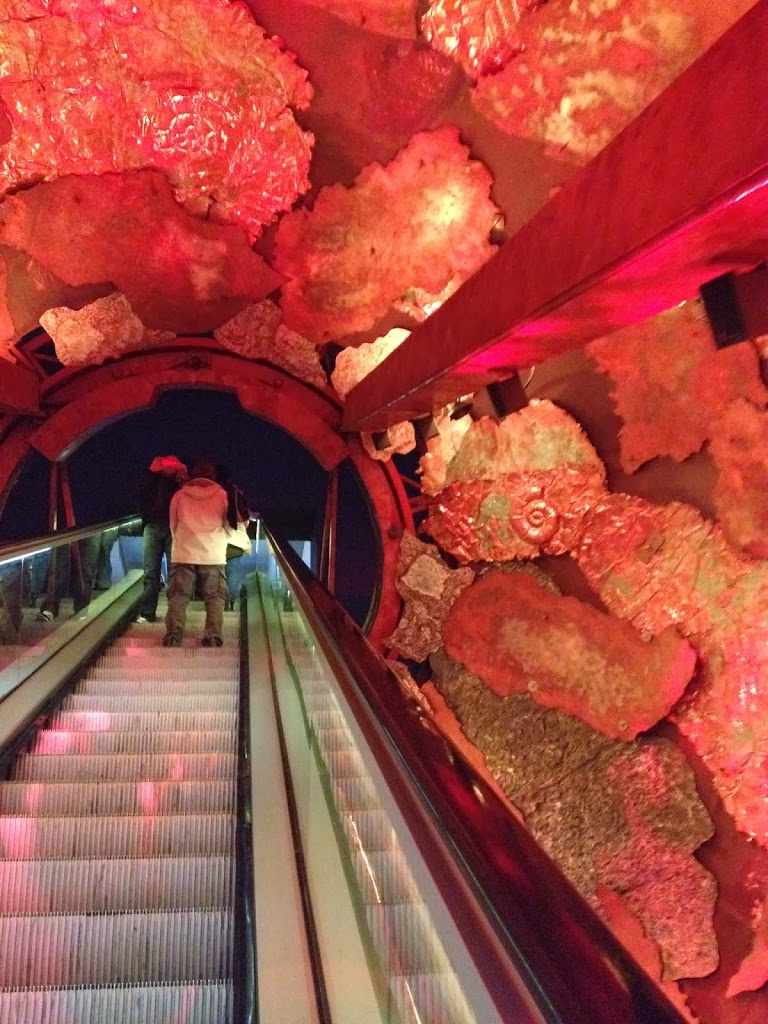
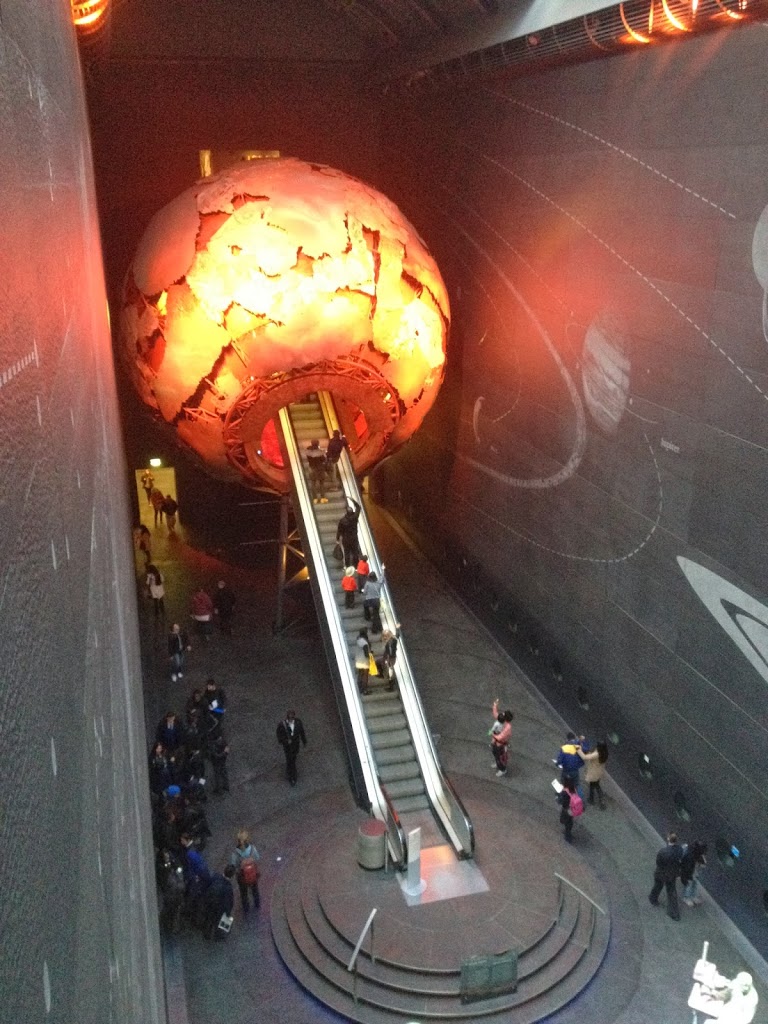
The Natural History Museum is a fascinating place to visit, for adults and children alike. I spent hours wandering around and had to exercise a lot of restraint in the gift shop! It is also home to the annual Wildlife Photographer of the Year exhibit, but you need to book and pay to see that. If you are interested in exploring the museum some more (in person or virtually) the website can be found here.
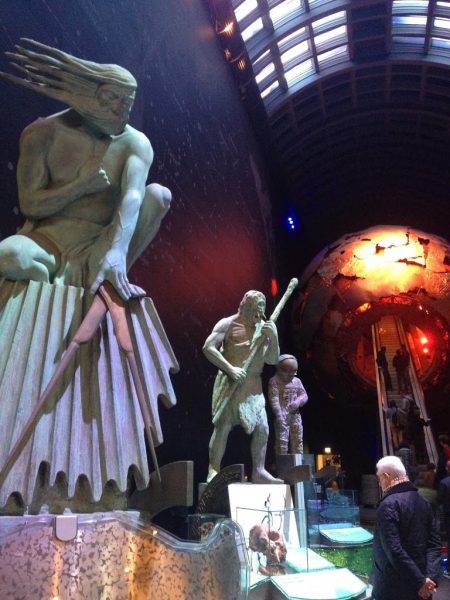
Stay tuned for more exciting sights next week, when I visit the Victoria and Albert Museum, as well as upcoming entries about Oxford and Stratford-Upon-Avon!
Disclaimer
All information is true and correct at the time of publishing but I cannot be held responsible for changes in opening times and prices or businesses closing in the meantime. I always endeavour to keep my posts up to date but also encourage you to double-check the official website of an attraction for information on when it is open, how much it costs, etc.

Leave a Reply